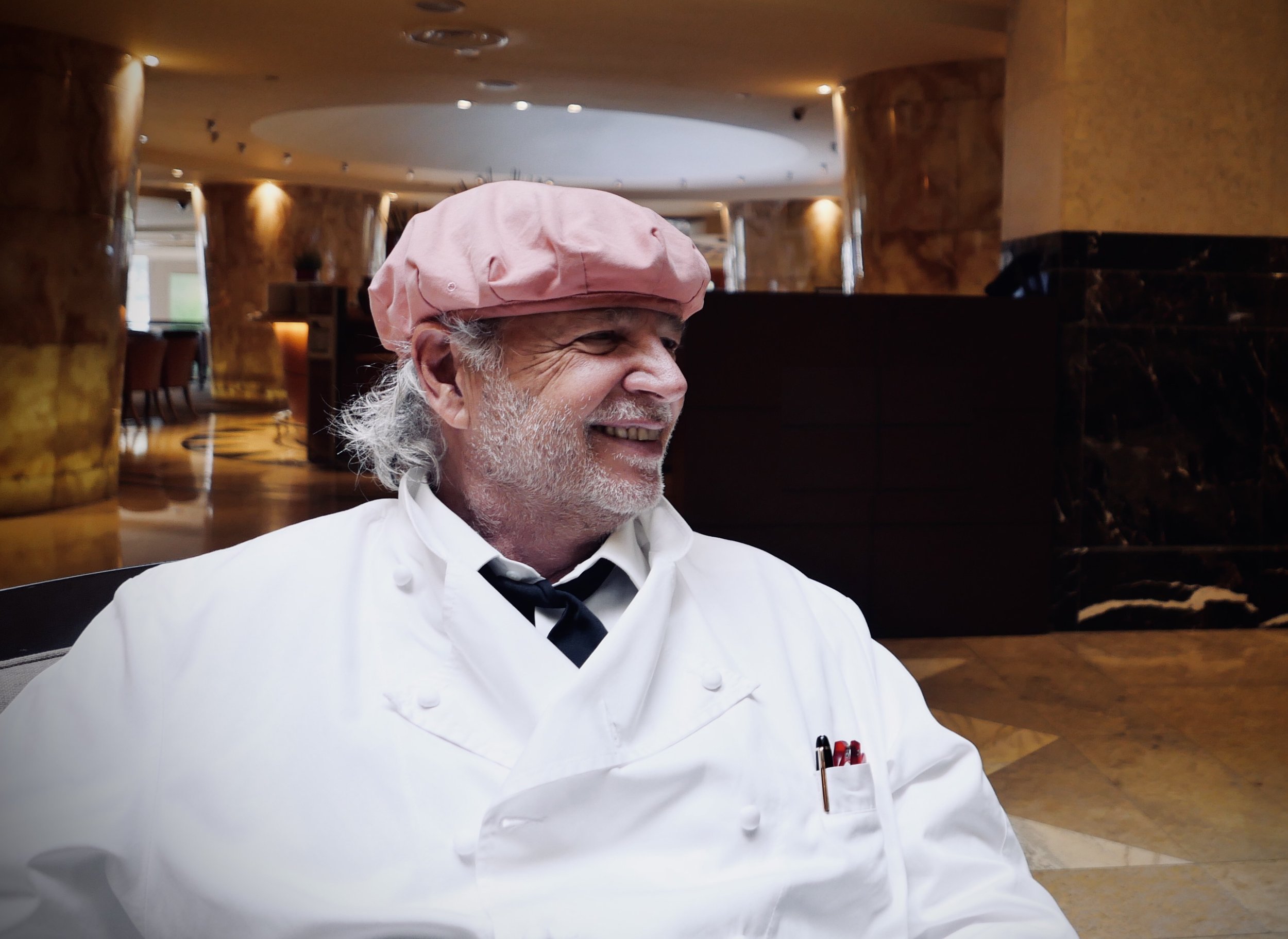Chef Francis Mallmann: Playing with Fire.
Your uncle might take to the backyard grill wearing a t-shirt that reads “World’s Greatest BBQ Master.” but that’s just idle boasting. If Argentine chef Francis Mallmann were to don the same garment, meanwhile, its claim would ring 100% true — this man is the foremost practitioner of open-flame cooking at work today.
Expertly employing traditional, rustic cooking methods to tease out the natural flavours in high-quality produce, Mallmann is a source of inspiration for the new breed of haute-barbeque enthusiasts — the charred and burn-scarred chefs helming restaurants such as Singapore’s Burnt Ends and Revolver, Marble in Johannesburg, and Ekstedt in Stockholm.
In this exclusive interview, conducted in Singapore last year, Mallmann discusses the need for greater traceability, sustainability, and ethics in meat consumption — and reveals the secret to cooking a superb steak.
Journeys in Artistry: Recently we’ve seen more and more restaurants that focus on open-fire cooking winning critical acclaim, Michelin stars and ravenous fan-bases. Why do you reckon this ‘primal’ style of cooking is striking a chord right now, after a long period where fussier, supposedly more ‘sophisticated’ methods like sous-vide dominated?
Francis Mallmann: We’ve had so many years of molecular cooking. And I think that in a way, many restaurants and chefs are going back to the old times and trying to embrace fire, which is one of the most beautiful ways of cooking. I can see that all around the world in the last few years. It’s become something more important for many chefs.
Considering the type of cooking you favour and your roots in Argentina, a major producer and consumer of beef, I was surprised to see you’ve expressed the belief that meat consumption will inevitably dwindle within the next few decades. What leads you to that conclusion?
I don’t think we’ll see the complete disappearance of meat consumption, but I do think that we will slow down. I mean, there’s no way out — we will slow down in the consumption of meat. Traceability will be more and more important, and the prices of good meat will be higher. Look at the way we have destroyed the oceans. The way we are raising chickens, it’s very, very bad. The same thing is happening with meat. A change has to come.
Are you observing a push in that direction from the new generation, where younger diners are more conscious of the provenance of what they’re eating and the ethical sourcing of ingredients?
Yes, the young are driving change, and they’re doing it in a very nice way. They’re very elegant and educated about it, they express their concerns in a very polite way. That’s something that I think is very important. When the young generation, people who are teenagers now, when they are leading the world in a ten or twenty years’ time, I think that there will be very big changes. Young people around the world are really united, without even knowing one another, they have this insight or this feeling that change must come. And I think they will take us there.
The young, we are giving them as an inheritance an Earth that is in big trouble. They know it. And I think they want to create change. They have very different ambitions; they’ve been raised in a very different way to previous generations. Their thoughts, their ambitions are not to have more money, but to do better things. And I think that’s very beautiful. I can see it constantly around me.
What are your thoughts on the various new high-tech meat substitutes being developed, lab-grown meat and so on?
First of all, I don’t think it’s a fight between one or the other, meat or substitutes — I think it’s something that will happen naturally. I’m not academic. I’m not a scientist. But I think that this development, it’s very interesting, and it’s a very good step to a better future. If you ask me, is it wonderful what they’re doing today? Not yet. Perhaps it will take a few more years to do something that is much better than what they’re doing today. But it’s a good start. Like other forms of technology, like electric cars for example, it will improve very fast. Is this the only solution? No, but it’s worth looking at with interest and respect.
For those of us who do continue to enjoy pleasures of the flesh, what is the secret to cooking a brilliant steak?
Well, I think that the most important ingredient to make a good steak is patience, not to sit and wait for nothing, but to sit and know how to wait for what should happen. Fire is a very fragile thing, the way it affects food. You have to learn that. You have to understand temperatures and how to cook well. It’s not done in a rush, even though you can make a nice steak fast. To truly understand it, like every other craft, you have to practice. You can read a book, take lessons, but at the end, it’s just yourself and the fire. There’s no way out. You know, advice will help you, but it won’t take you all the way.
And what should we be conscious of, in order to purchase and consume meat in a more considered, ethical way?
You need to look at where the meat comes from — where was it raised? Did the animal have antibiotics or anabolics? Did it eat grass, what did it eat? Those are questions we’ve had in our heads for many, many years. Now, I think governments will have to be more strict about finding out and answering all those questions and getting the producers to answer those questions accurately, in the right way.


